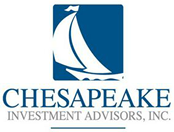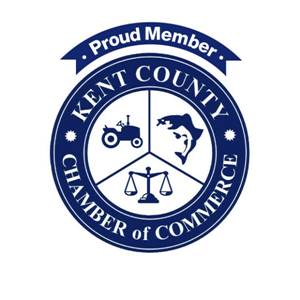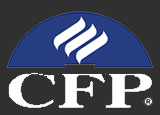Traditionally, every July and December mark the end of many State Police careers through retirement. Retiring is a wonderful thing—I retired last year after 26 1/2 years. Driving off the Quartermaster parking lot in my personal vehicle after returning my equipment was a once in a lifetime event I hope every Trooper has the chance to experience.
The other once in a lifetime experience for recent retirees is getting your DROP check (Deferred Retirement Option Program). There are just not enough times in life when you receive six-figure checks in the mail. Just what you should do with that check is the subject of this article.
The first thing to realize is that the amount on the check is, well, a bit overstated. Your DROP account is a qualified plan, which means that the money accumulated taxdeferred. Your money grew so quickly because no income taxes were paid before they were deposited in the account. Also, no taxes were paid on the 6% annual interest earned. One of the two unavoidable things in life—the more pleasant one I might add, is paying taxes; and you must pay income taxes on the DROP money upon withdrawal.
So for example, if your check is $150,000—think of it as somewhere around $112,500 in take-home money1. Moreover, if you immediately take the cash (or in IRS terms—take a non-qualified distribution) before the age of 59 ½, you are assessed an additional 10% penalty. (There are some rare exemptions to paying this penalty, but they are indeed rare.) The bottom line, the money is very nice, exceptional in fact, and you are not likely to be able to save this amount ever again in such a short period of time, but it is not as much as you first think.
One of the first pieces of information you are sent when you retire with the DROP is an IRS publication (8 pages long) titled, Special Tax Notice Regarding Plan Requirements– Safe Harbor Explanation. You will need to read this form several times before being able to decipher the meaning. The narrative is as archaic as a Tom Dentry liberal-leave, early-dismissal-due-to-inclement-weather teletype! But since the form warns of the penalties and income tax issues regarding your account—you must read it carefully. Most importantly, the form explains that to avoid a penalty and immediate payment of taxes you must roll the check over to a “qualified” plan, for example, a traditional IRA.
As I mentioned earlier, retiring is a wonderful experience. Personally, I had the luxury of taking a few weeks on comp-time before my actual departure date. I soon became aware of how few times in our working lives we awaken at 6am with absolutely nothing to do. I just as quickly realized that I was not going to be able to do this for long. Actual retirement—i.e., sitting around the house with little to do, is highly overrated. Fortunately I was able to turn a lifelong hobby and interest into a second career. With a newly minted Loyola MBA, I studied and passed the required certification tests (Series 7 & Series 66) and began work as a Financial Advisor for an independent firm in Chestertown; Chesapeake Investment Advisors. After a training and mentoring period I began managing my own client’s investments.
There are, literally, millions of investment products on the market. And there are loopholes; pitfalls; restrictions; opportunities; and risks in every kind of investment and generally, people don’t know what they don’t know. That lack of knowledge, and the self-delusion that if we just read a few brochures, check the internet, watch an investment television show, we can learn the market, leads to bad decision-making, bad investments and lost opportunities and, most often, lost money. There’s a TV ad running lately where the company tries to convince people to invest with an on-line broker, the ad’s closing statement says something like, “you can do this”. True enough, you can invest without professional help—but why would you want to? I could probably change my own oil too but I guarantee that over time I would miss something and in the end, my frugalness would cost me a lot of money.
Those same kinds of risks abound when investing on your own. A 2005 study2 by DALBAR, Inc. showed that the returns realized by the average investor from 1984 to 2004 were a paltry 3.70%, while the overall S&P 500 returned 13.20%–meaning that the average investor missed over 9% more earnings if they would have just invested in a vehicle that tracked the S&P 500. The pressure of investing your own money often proves overwhelming for the individual investor and they end up buying stocks while their price is high and selling them when their price falls; the exact opposite of the ideal.
Many of you became painfully aware of the truth behind the NASD (National Association of Securities Dealers) disclaimer that “Past performance does not guarantee future results” when in March of 2000 the market’s “tech-bubble” burst. Up until that point most Deferred Comp (457 & 401K) investments made money—some made more, some made less, but they always seemed to go up. We should never forget, however, one other very important NASD warning, “people can and do lose money when investing in the market”. And I can tell you, anecdotally, within MSP, between March 2000 and October 2002, hundreds of thousands of investment dollars were lost3.
One problem is that the information Troopers receive about investment options doesn’t even scratch the surface of what is required to make responsible financial and investment decisions. If we were lucky, someone came into the academy class and discussed the benefits of joining what we call deferred comp; they talked about how important it was to save money tax-deferred in the State’s 457 or 401K plan. Where to invest that money– within the plan–was left up to you. We were given the list of available mutual funds and that was about it. And true enough, at $25 a paycheck it’s wasn’t overly important that you chose the best investment—it was important that you began saving, but whether you got 5% or 6%, or even 10% didn’t make a lot of difference early on. Later, as your account grew, the value and gravity of your choices increased.
The same can be said about the DROP program—where to invest the money is not important when you are deciding whether to get in or not. In fact, the State doesn’t give you an option of where to invest—they will pay you 6% annually, hold your money until you leave, and that’s that. The tough decision about where to put your DROP and your 457 money comes when you retire. And that’s when you need the services of a Financial Advisor.
Financial Advisors have a fiduciary responsibility to their clients, which means that by law, the Financial Advisor owes their client duties of good faith, trust, and confidence and must act in their best interests. Surprisingly, sales people at many major brokerage firms are not Financial Advisors and thus do not have the same fiduciary obligation to their clients. It is important to choose your Advisor well, ask for references from other retirees, trusted friends, etc. This is your future—you need someone who you can trust. The good news is that with quality investment advice you should do very well financially speaking. Just one advantage of being a State Trooper are the fringe benefits—including, if only just recently, our retirement benefits. With a stable and inflation-protected defined benefit retirement plan (our pension)–coupled with some very good defined contribution plans (457 & DROP), you can retire quite comfortably. But for sanity’s sake, prepare ahead of time, find a hobby, educate yourself for a new career, do something, sitting around the house doing nothing is not what you worked all those years for.
1Calculated at 25% tax bracket—the actual tax amount will vary.
2DALBER, Inc., “Quantitative Analysis of Behavior,” 2005
3On 2-1-00 the DJIA was 11,041.05; on 10-7-02 it was 7,528.40 (-31%) Source: Commodity Systems, Inc.
Marty Knight, MBA, is a retired Captain from the Maryland State Police and is a Financial Advisor with Chesapeake Investment Advisors, Inc. Chestertown Maryland; he can be reached at 410-810-0735 or mknight@chesadvisors.com. Securities and Advisory Services offered through Geneos Wealth Management, Inc. member NASD/SIPC


